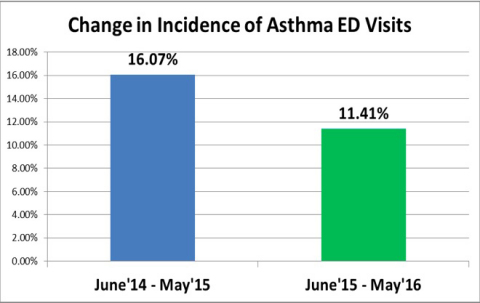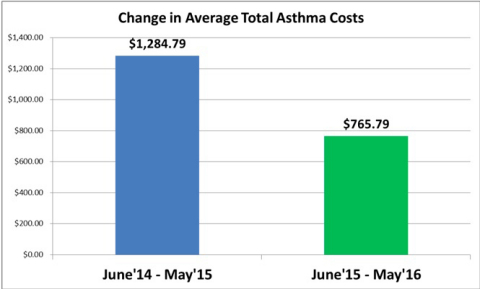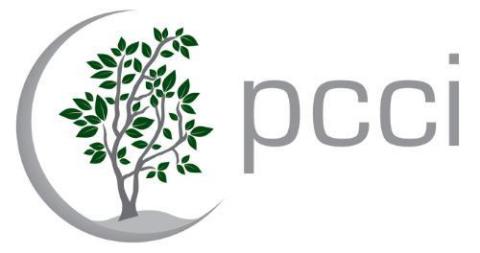DALLAS--(BUSINESS WIRE)--Seventeen months after implementation, PCCI has released new numbers for its predictive risk models for pediatric asthma utilization. These models, implemented at Parkland Community Health Plan (PCHP) beginning in April of 2015, seamlessly send best practice alerts to care providers through the Electronic Health Record to facilitate interventions. Moreover, providers are given periodic reports on their higher risk patients and on their own performance. These models have helped provide better care for patients suffering from asthma.
“PCHP wanted to target asthma emergency department (ED) visits and hospitalizations among their members to improve patient health and save costs, so they turned to PCCI to build a predictive risk model for asthma using clinical and socio-demographic variables, like patterns of medication prescription fills and gaps in enrollment,” said PCCI Medical Director Dr. Yolande Pengetnze. “For each patient, the model creates a risk score that tells how likely a patient is to visit the ED or be admitted to the hospital for asthma within the next three months. The score will also generate an actionable case manager work list that is sent to the providers monthly to reach out to these at-risk patients for tailored interventions.”
Since inception of the joint PCCI-PCHP program, substantial reductions in asthma-related ED visits and asthma hospitalizations have been shown. In fact, total asthma costs per PCHP member per year were reduced by almost 40 percent for the participating provider groups.
“This metric shows that with these interventions, patients are taking better control of their asthma,” said Dr. Pengetnze, “which means healthier patients and savings for the Parkland Community Health Plan and its members.”
“Parkland Community Oriented Primary Care health centers, as a participating provider group, accounted for a substantial portion of the success,” said Dr. Donna Persaud, PCCI’s Senior Medical Director and Executive Director of the Dallas IEP. “This is deeply meaningful for the care of underserved children who struggle with asthma that all too often erodes their quality of life through interruption of normal childhood opportunities with emergency room visits and hospitalizations.”
Next steps for researchers are to complete a text messaging program currently being piloted to increase patient engagements by monitoring asthma symptoms, educating members about asthma and also pushing appointment and medication refill reminders to them — tactics focused on increasing accountability and lowering costs.
About PCCI
PCCI is an advanced non-profit research center in Dallas, Texas, on a mission to reimagine and expand the knowledge-base of healthcare delivery in the age of machines. PCCI uses scientific research and applied analytics to improve the quality, efficiency, and experience of healthcare, at Parkland Health & Hospital System, and beyond. You can learn more by visiting www.pccipieces.org or on twitter @pccipieces.
About Parkland Community Health Plan, Inc. (PCHP)
PCHP is one of the leading non-profit health maintenance organizations in Texas with more than $500 million in annual revenue. It covers a seven county area centered on Dallas and includes over 30 contracted hospitals, 1,000 primary care providers and over 3,000 specialists. Over the past three years, PCHP has served over 400,000 unique members.





